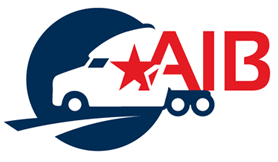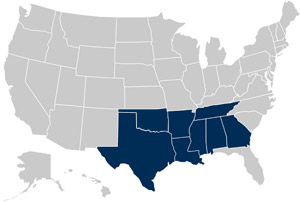When you’re operating a trucking business in Texas, commercial truck insurance isn’t just another expense—it’s a critical investment in your company’s long-term stability. Yet, many fleet owners feel the squeeze of rising costs. Fortunately, there are several strategies trucking companies can employ to reduce premiums while maintaining the comprehensive coverage they need.
Below, we’ll explore why trucking insurance in Texas can be so expensive, outline the state’s minimum insurance requirements, and detail practical, proven ways to lower your commercial vehicle insurance rates. We’ll also look at how driver experience, fleet size, and safety technologies impact costs—and highlight any available Texas-specific discounts. Finally, we’ll guide you toward actionable next steps to help protect your livelihood and keep more money in your pocket.
Why Is Trucking Insurance So Expensive in Texas?
Many trucking companies across the country struggle with high insurance premiums, but this issue is especially pronounced in Texas. A few factors contribute to these rising costs:
- High Traffic and Accident Rates
Texas is a large state with a high volume of commercial trucking traffic. More vehicles on the road often translates to a higher likelihood of accidents. Insurance carriers respond by raising premiums to offset increased claim risks.
- State-Specific Regulations
While commercial truck insurance is regulated at the federal level by organizations like the Federal Motor Carrier Safety Administration (FMCSA), Texas also enforces specific requirements. Ensuring compliance with these regulations sometimes leads to higher policy costs.
- Litigious Environment
The legal climate in Texas can contribute to bigger settlement payouts in accident claims, which pushes insurance premiums upward. Carriers charge more to account for the potential of large legal costs.
- High Cargo Values
Texas is a key hub for major industries like energy, agriculture, and manufacturing. High-value loads often mean higher insurance costs to cover potential cargo damage or theft.
- Driver Shortage & Experience Levels
The ongoing driver shortage can push trucking companies to hire less-experienced drivers. Insurance carriers often view less-experienced drivers as higher risk, which can increase premiums.
Recognizing these factors is the first step to effectively managing your commercial truck insurance costs. Fortunately, there are practical solutions trucking companies can implement to keep premiums in check.

What Are the Minimum Insurance Requirements for Texas Trucking Companies?
Staying compliant with both federal and state regulations is vital. According to the FMCSA, interstate carriers (those crossing state lines) must meet specific minimum liability coverage based on the type of freight transported. Here’s a quick overview:
- General Freight: $750,000 minimum liability coverage for vehicles over 10,000 lbs.
- Hazardous Materials: $1,000,000 to $5,000,000 depending on the type of substance hauled.
- Household Goods Movers: $300,000 minimum liability coverage.
On top of federal requirements, Texas truck insurance mandates at least $500,000 in combined single-limit coverage for certain commercial vehicles operating intrastate (within Texas only). However, many shippers and brokers will require higher limits to do business with them.
Other Required Coverages in Texas Might Include:
- Uninsured/Underinsured Motorist Coverage: Protects against accidents where the other party has no or insufficient coverage.
- Personal Injury Protection (PIP): Covers medical expenses and, in some cases, lost wages and other damages.
While these are basic requirements, higher coverage amounts are often needed to safeguard your assets. The exact coverage you need depends on the nature of your business, the type of cargo, and the risk tolerance of your operation.
How Can I Lower My Commercial Truck Insurance Premiums?
Lowering your commercial truck insurance premiums isn’t about cutting corners—it’s about demonstrating to insurers that you’re actively reducing risk. Here are key strategies:
1. Build a Comprehensive Safety Program
- Training and Refresher Courses: Provide ongoing driver training to reinforce safe driving practices.
- Regular Maintenance Schedules: Keep vehicles in top condition to lower accident risks.
- Driver Monitoring: Use telematics to track driver behavior (e.g., harsh braking, speeding), then address issues promptly.
2. Maintain a Clean Loss Record
- Prompt Claims Management: Handle claims quickly and efficiently to showcase professionalism and reduce total claim costs.
- Accident Response Procedures: Implement protocols that protect drivers and minimize damages immediately after an incident.
3. Leverage Technology
- Electronic Logging Devices (ELDs): Track Hours of Service to prevent driver fatigue.
- Collision Mitigation Systems: Forward-facing cameras and lane departure warnings can significantly cut down on accidents.
- Driver Scorecards: Reward safe drivers and encourage improvement among higher-risk drivers.
4. Hire and Retain Experienced Drivers
- Screen Thoroughly: Background checks, driving history reviews, and reference checks lower the risk of hiring unsafe drivers.
- Offer Competitive Pay and Benefits: Keeping good drivers reduces turnover, which insurers view favorably.
5. Optimize Fleet Size and Composition
- Assess Vehicle Age: Older equipment may have higher maintenance costs, but brand-new trucks can inflate insurance valuations. Aim for a balanced fleet.
- Right-Size Your Fleet: Having just enough vehicles to meet demand can lower your overall risk exposure.
6. Bundle Your Policies
- Combine Coverages: If you carry multiple lines of commercial insurance, bundling property, liability, or cargo coverage with one provider can reduce total costs.
7. Consult with Insurance Specialists
- Annual Policy Reviews: Conditions, assets, and laws change over time. A yearly review ensures your coverage matches your current needs.
- Shop Around: While loyalty can help build a relationship, exploring multiple carriers for competitive quotes is wise.
By proactively managing risk, you can demonstrate to underwriters that your operation is safer than average, often resulting in lower commercial auto insurance premiums.
Does Driver Experience Affect Insurance Rates?
Yes—driver experience heavily influences insurance premiums. Insurers are keenly interested in a driver’s record, including:
- Age and CDL Experience
- Accident History
- Moving Violations
- Previous Trucking Employers
A clean driving record and years of incident-free experience signal lower risk. This often translates into more favorable insurance rates. Conversely, insurers may charge higher premiums—or even decline coverage—for fleets with inexperienced drivers or a history of frequent accidents.
Tips to Benefit from Driver Experience:
- Hire Quality Drivers: Prioritize hiring experienced drivers through thorough screening and background checks.
- Reward Safe Behavior: Implement an incentive program for accident-free miles or zero-violation records.
- Ongoing Training: Even the best drivers can improve and stay updated on industry best practices.
How Does Fleet Size Impact Trucking Insurance Premiums?
Fleet size can influence your commercial vehicle insurance in multiple ways:
- Economies of Scale: Larger fleets may receive discounts due to bulk coverage, but the potential for more claims can offset that benefit.
- Risk Distribution: A bigger fleet might help spread risk, meaning one accident won’t necessarily devastate the entire premium rate.
- Operational Complexity: Larger fleets often have more complex operations, which can lead to higher administrative and compliance costs that might reflect in insurance rates.
Ultimately, whether you operate two trucks or two hundred, showing that your fleet is well-managed and safety-conscious can go a long way in keeping premiums manageable.

What Role Does Safety Technology Play in Reducing Premiums?
Safety technology has become a game-changer in the trucking industry. Insurers view any technology that reduces the frequency or severity of accidents as a positive investment. From telematics to advanced driver-assistance systems (ADAS), adopting the right tech stack can:
- Lower Accident Risk
Real-time data helps drivers maintain safe habits, reducing the likelihood of crashes.
- Provide Evidence in Disputes
Dashcams and telematics data can protect your fleet in “he said, she said” scenarios, potentially reducing costly litigation.
- Boost Operational Efficiency
Optimizing fuel usage and routing not only boosts efficiency but also enhances business stability—something insurers reward with lower premiums.
By adding these technologies, you’re not just investing in operational efficiency—you’re also creating a strong argument for lower insurance rates.
Are There Any Texas-Specific Discounts for Trucking Insurance?
Yes, insurance carriers often offer various discounts that cater to the Texas market. Some potential savings opportunities include:
- Safe Driving Discounts: Fleets with clean records and no recent claims often see the biggest discounts.
- Safety Equipment Discounts: Installing approved safety devices (e.g., anti-theft systems, dashcams) can lead to lower premiums.
- Multi-Policy Discounts: Bundling multiple lines of coverage—like general liability and Texas auto insurance—can reduce costs.
- Membership Discounts: Carriers occasionally offer lower rates for members of professional organizations like the American Trucking Associations (ATA) or regional groups.
- Continuous Coverage Discounts: Maintaining coverage without a lapse can qualify you for better rates over time.
It’s also wise to consult an insurance specialist who understands Texas-specific regulations. They can help you identify lesser-known discount programs tailored to your operational needs.
Next Steps to Reduce Your Insurance Premiums
After reading these strategies, you may be wondering how to implement them efficiently. Whether you run a large trucking operation or are just getting started with a few vehicles, an insurance specialist can provide a custom risk management plan that addresses your unique challenges.
Here’s how to get started:
1. Review Your Current Policy
- Are you paying for coverage you don’t need?
- Do you have enough coverage in high-risk areas?
2. Schedule a Risk Assessment
- Identify top risk factors, including driver-related risks, fleet maintenance, and operational inefficiencies.
3. Invest in Driver Training
- Implement or improve your safety training programs.
- Ensure all drivers understand compliance requirements and best practices.
4. Install and Use Safety Tech
- From ELDs to dashcams, invest in systems that help you monitor, document, and reduce risk.
5. Work with a Specialist
- An expert in commercial truck insurance can navigate the complexities of the Texas market.
- They can also advocate for you with underwriters, helping you secure better rates.
Ready to Save on Texas Truck Insurance Premiums?
Lowering your premiums doesn’t have to be a guessing game. By focusing on safety, compliance, and smart technology, you can demonstrate to insurers that you’re a lower-risk operation—often leading to more favorable rates.
If you’re ready to see how much you can save—or simply want a second opinion on your existing policy—we can help. Our team at American Truck Insurance specializes in commercial insurance for the trucking industry. We’ll review your current coverage, suggest cost-saving measures, and help you implement a strategy that keeps your fleet on the road at the lowest possible cost.








